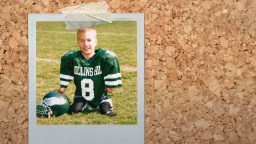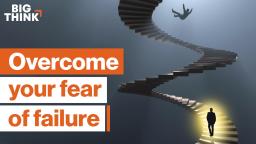Why don’t we chase our dreams? What if everyone confronted the daily excuses they make for themselves? Innovation would explode around us. Life satisfaction would soar. Any yet we typically keep a safe distance from our inner-most ambitions. Self-preservation is linked to a deep evolutionary drive that makes us err on the side of caution to avoid social isolation or decimation at the toothy end of a lion. It’s time to tear down these ancient and ultimately irrational behaviors, says Kyle Maynard. Being the first quadruple amputee to reach the summit of Mount Kilimanjaro and Mount Aconcagua without the aid of prosthetics, he has lived his life on the philosophy of ‘No Excuses’. Being honest with yourself about what your excuses are empowers you to push back against them and truly live. Kyle Maynard is the author of No Excuses: The True Story of a Congenital Amputee Who Became a Champion in Wrestling and in Life.
Kyle Maynard: What is one big excuse that you could take on right now, today, and do something about? If you started there what would your life look like in 30 days? What would it look like a year from today? What would it look like five years from today?
And if we took on some of our bigger excuses, can you imagine what would happen inside of even just New York alone, if you had one percent of the population that took on their biggest excuse, what the creative generative effect of that would bring?
Frankly our brain is hardwired to survival, and because of that our brain with any fear that we have or any justification that we make as to why we do something or not do something, I believe a lot of those answers come back to survival. And there's usually a positive intention behind some of the excuses that we go and make, maybe even preservation of our own energy or preservation of self. There's a lot of times where fears are good, rational fears, and there's a good intention behind them; it's just uncovering that and kind of unpacking it, and seeing what's really going on there.
I think for starters I think some of the excuses I make come to mind, in terms of common excuses: I don't have enough time; I'm too busy; I've got too much on my plate; I’m too young; I don't have enough money or… too much money? — I don't know if that's really an excuse, but there's a million: “I’m not good enough…”
But I think it's really actually the more creative excuses, the ones that are a little bit more sneaky and insidious, the ones where we can convince ourselves that they're good reasons. So a lot of times if I don't want to compete in something or I feel like I'm not going to win or whatever, I’ve got some type of fear of failure, then I'll make a really creative excuse.
We make thousands of justifications I think probably, a week. Excuses to me are a mountain, and there's no end to the trail, there's no summit to it. We're never going to arrive at a point where we're completely free of our excuses. But I think the idea is just have a little bit more awareness around some of the bigger ones.
I think it starts with telling the truth to yourself about something. Right? I believe that the extent to which you can tell the truth to yourself about whatever excuses you're making is the extent to which you can be free from it. You have to start there.
I love the spirit of the message of, for instance, of saying something like, “Anything is possible,” but I don't actually believe it. Anything is maybe possible in the future, but at this moment in time I'm not going to go and bench press 10,000 pounds; at this moment in time we aren't going to go and colonize Mars. So you've got these bigger society wide excuses that we make as human beings. You've got individual smaller excuses that we make just as people living our day-to-day lives.
I would say too, for people watching this, the worst thing that could happen is that, frankly the worst thing (from my perspective at least) is: someone watches this and starts beating themselves up over the excuses that they go and make. And if people go and say to me after a speech is done, “Wow you've done some awesome things with your life, but I suck, and I can't do anything,” I go, “Well, you kind of missed the point…”
I want people to know that I am a master excuse-maker, and I know just now how many excuses I go and truly make, and I have to go and tell the truth to myself about the excuses that I'm making now.
It's kind of this idea—and I didn't come up with it—it was Alfred Korzybski in 1931 who said that “The map is not the territory.”
And we all walk around with our own mental maps based on our experiences, maps of the world, and we like to go and think of those maps as reality instead of realizing they're just freaking maps. And they're just up here [in the mind], and some maps are better than others. A good map you can navigate accurately with, a bad map not so much, and we all have our own maps.
Really I would start with telling the truth to yourself.






